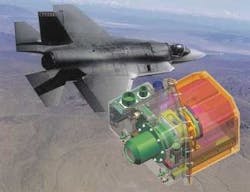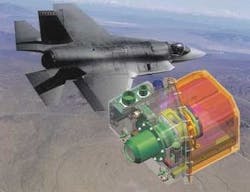Lockheed Martin to supply optical transceivers for JSF networking
EAGAN, Minn. — Engineers from Lockheed Martin Corp. are providing optical transceivers for the company's F-35 Joint Strike Fighter (JSF) program. Providing the transceivers will be engineers at the Lockheed Martin Corp. Naval Electronics & Surveillance Systems Tactical Systems business unit in Eagan, Minn.
These transceivers, which are important components of the JSF mission system, help link the JSF avionics electronic processing subsystem to the aircraft's fiber optic network. Lockheed Martin Aeronautics in Fort Worth, Texas, is building the JSF.
Lockheed Martin-Eagan engineers are supplying the transceivers to Harris Corp. of Melbourne, Fla., which is under contract to Northrop Grumman Corp. in Los Angeles to provide common components for the JSF's conventional and short takeoff vertical landing variants.
Lockheed Martin was to deliver two different transceivers to Harris in August — the large-form-factor transceiver, and the small-form-factor transceiver.
The JSF mission uses fiber-optic technology to share data between various subsystems in near real time, Lockheed Martin officials say.
The small size of the Lockheed Martin transceivers enables Harris integrators to mount the transceivers directly on the processing modules, company officials say. This helps with mission system packaging that is more compact than ever before, officials say.
Lockheed Martin Tactical Systems is also integrating the JSF Integrated Core Processor. The company is to demonstrate that today's small, inexpensive, general-purpose processors can handle intensive algorithmic computations that create air-strike scenarios.
The goal is to use commercial off-the-shelf hardware and software for the JSF sensor and Integrated Core Processor subsystems.

